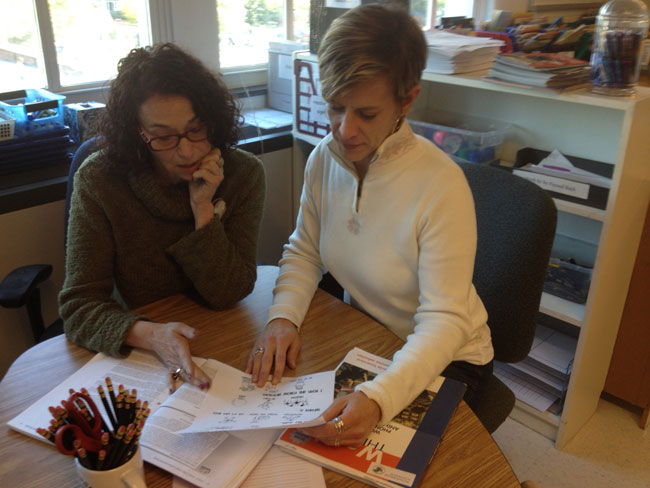 Many years ago, at the beginning of their parent-teacher conference, my sixth grade teacher told my father that I “was a delight to have in class and a lovely child.” My father’s response was unexpected. He replied “Don’t tell me what a lovely child my daughter is; tell me what she has learned, what she needs to learn and how I can help her.”
Many years ago, at the beginning of their parent-teacher conference, my sixth grade teacher told my father that I “was a delight to have in class and a lovely child.” My father’s response was unexpected. He replied “Don’t tell me what a lovely child my daughter is; tell me what she has learned, what she needs to learn and how I can help her.”
While accountability wasn’t the watchword when I was in elementary school, my father wanted to know what I knew, what I needed to know and how he could help me if I didn’t know it. He was a man ahead of his time, but he wanted to know what every parent wants to know. Both parent-teacher conferences and report card comments provide an opportunity for the educator and parent to address these questions in a meaningful manner. Meaningful conferences and report card comments are a window into the child’s experience as a learner. Teachers should be able to give families information that explains how their student is progressing towards the grade level standards and/or the curriculum being taught.
“I am proud of Susie. She has worked hard this first quarter and has made good progress. She is a good friend to her classmates.” It is important to include comments as a part of the parent-teacher conference and report card process, however, comments like those above do not provide parents or the student any insight or information regarding the student’s progress towards the standards or how much he or she has learned since the start of the school year. Instead, it would be better to include more specific comments such as the ones below as part of a more complete narrative to provide a basis for understanding a student’s rate of progress. For example, a teacher might write or share in a conference:
I am proud of Susie. She has worked hard this first quarter and has made good progress. Susie was reading at a level D at the start of the school year, she is now reading at a level H. First graders are expected to be at levels J/K/L at the end of the school year. Susie is well on her way towards meeting that goal. Susie is a good friend to her classmates and treats everyone’s ideas with respect during guided reading groups.
A narrative report card can be a wonderful source of information about how and what a student learns when the teacher takes the time to provide this insight. Parents will find information such as this useful and helpful:
During our Sustained Quiet Reading time, I conference with individual students to check in to see how they are doing with decoding and comprehending their independent reading selections. Susie often needs a bit more guidance choosing a “just right book,” those that are of high interest and provide enough of a reading challenge to be interesting, but at the same time are not at her frustration level. Once we find the appropriate text, Susie can do quite well. Her comprehension is strong at the literal level but she needs more support for deeper level comprehension. During the next quarter we will focus on developing Susie’s inferential reading skills. If you would like to reinforce this at home, please contact me and we can set up a conference so I can model the strategies we use in our reading group to build inferential comprehension skills.
There is no one right way to have responded to my father, but the questions he asked must be addressed if a parent conference or report card comments are to be a meaningful part of a student’s educational experience. Students and parents deserve no less.
By Laurie Gross, Educational Consultant and Reading Specialist.